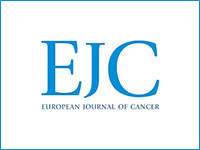
“Lung cancer remains the most chronic form of cancer and the leading cause of cancer mortality in the world. Despite significant improvements in the treatment of lung cancer, the current therapeutic interventions are only partially effective, necessitating the continued search for better, novel alternative treatments. Angiogenesis and cancer stem cells play a central role in the initiation and propagation of cancers. Tumor angiogenesis is triggered by an angiogenic switch when pro-angiogenic factors exceed anti-angiogenic components. Although many anti-angiogenic agents are used in cancer treatment, there are therapeutic limitations with significant side effects.
In recent years, cannabinoids have been investigated extensively for their potential anti-neoplastic effects. Our previous findings showed that cannabidiol (CBD) could impede tumor growth in mouse models of melanoma and glioblastoma.
Importantly, CBD has been suggested to possess anti-angiogenic activity.
In this study, we tested, for the first time, inhalant CBD in the treatment of heterotopic lung cancer and whether such potential effects could reduce cancer stem cell numbers and inhibit tumor angiogenesis.
We implanted NCI H1437 human lung cancer cells in nude mice and treated the mice with inhalant CBD or placebo. The outcomes were measured by tumor size and imaging, as well as by immunohistochemistry and flow cytometric analysis for CD44, VEGF, and P-selectin.
Our findings showed that CBD decreased tumor growth rate and suppressed expression of CD44 and the angiogenic factors VEGF and P-selectin.
These results suggest, for the first time, that inhalant CBD can impede lung cancer growth by suppressing CD44 and angiogenesis.”
https://pubmed.ncbi.nlm.nih.gov/36737540/
https://link.springer.com/article/10.1007/s13577-023-00869-8









